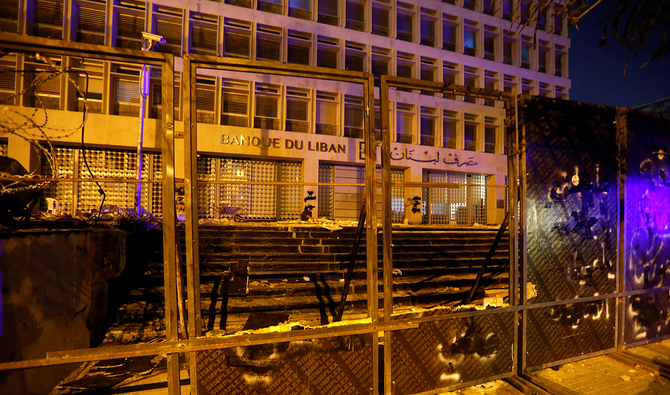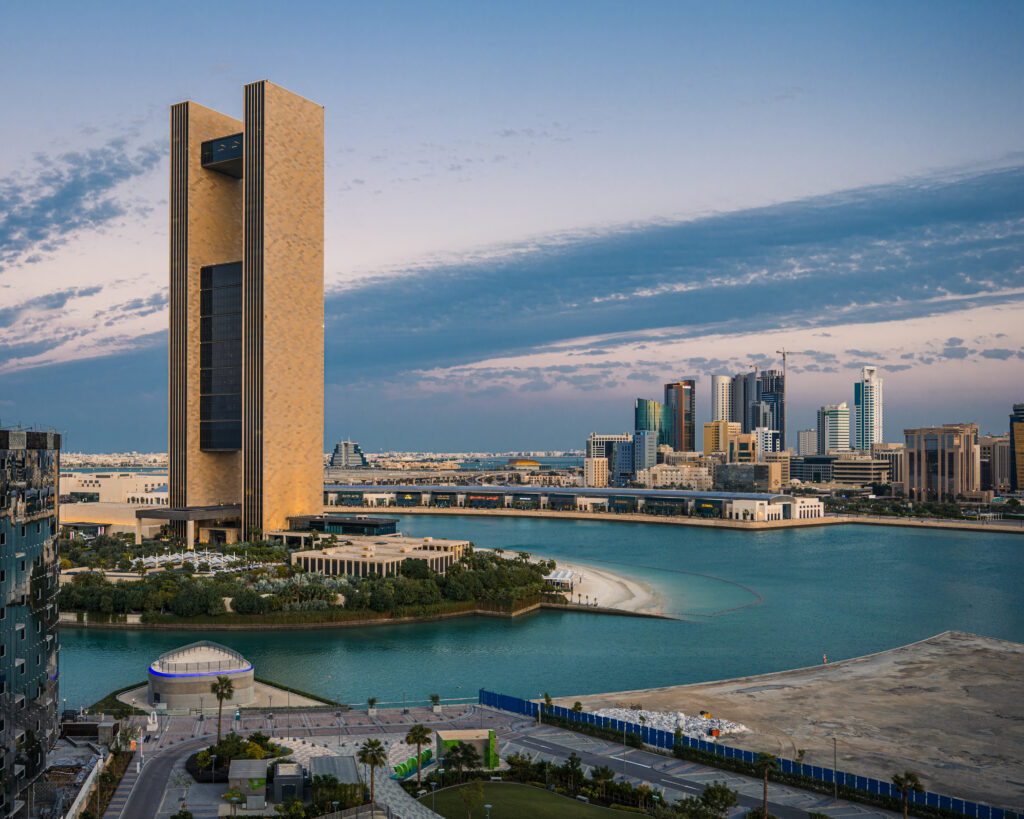Najia Houssari
BEIRUT: Banque du Liban Governor Riad Salameh is using banking and professional secrecy laws to avoid delivering documents to consultancy firm Alvarez and Marsal for its audit of the bank’s accounts.
Alvarez and Marsal Managing Director James Daniell met with the Lebanese Minister of Finance Ghazi Wazni on Wednesday to discuss the contract signed by the firm and the government to carry out the process, and will meet President Michel Aoun on Thursday.
Aoun and the country’s caretaker government, headed by Hassan Diab, are waging a political battle against Salameh to recover seized money, blaming the economic collapse of the country on financial engineering pursued by the governor.
Minister of Justice Marie Claude Najm has issued a circular requiring Salameh to provide Alvarez & Marsal with the necessary information and documents to conduct a financial audit, based on “the fact that the banking secrecy stipulated in Lebanese law does not apply to state accounts and the accounts of the Banque du Liban, especially since these funds are non-confidential under the law on the right to access information.”
The bank announced on Wednesday in a statement that it had “handed over all its accounts to the minister of finance” according to due process.
“Concerning state accounts, the Lebanese state can request a detailed statement of its entire accounts and subsequently hand it over to the parties it deems appropriate to inform them, which makes the Banque du Liban avoid the violation of the legally binding secrecy laws, and whose violation will entail penal consequences,” it added.
The bank said it regretted “the leakage of information and data provided to Alvarez and Marsal on social media, which violates the law and the provisions of the contract signed with the company.”
Alvarez and Marsal had informed Lebanese officials that “the documents it received from the Banque du Liban (were) so far insufficient to continue their criminal audit duties.”
But Deputy Speaker Elie Ferzli has refused to lift banking secrecy over the case, saying it would “harm the country’s economic interests.”
In a statement in Parliament, Ferzli said: “We lift banking secrecy when it comes to money laundering and terrorism, not because of indiscriminate accusations.
“What is the purpose of systematically destroying what little confidence remains in the international community in Lebanon, due to banking secrecy, to satisfy this person or that? If banking secrecy is lifted in the future, can you tell me: Where do we get what we live on? From apples and grapes? Think about Lebanon’s best interests.”
The Free Patriotic Movement (FPM), led by Gebran Bassil, organized a symbolic car rally on Wednesday in Baabda to demand the criminal audit go ahead.
Dr. Jassim Ajaka, an economist, told Arab News: “The Banque du Liban, according to the law, does not have the right to disclose any information. The contract signed between Lebanon and the auditing company (Alvarez and Marsal) provides for auditing only the accounts of the bank, and does not include ministries or any other official institutions.
“Therefore, what is required is not to pressure the bank’s governance to reveal its information, but to go to Parliament to propose a law to amend banking secrecy, or to refer any request to audit anyone’s accounts to the judiciary or the Audit Bureau, two bodies entitled to lift banking secrecy.”
Ajaka added: “What is required is to start with the accounts of the ministries of energy and communications, for example, as the Banque du Liban is the bank of these ministries.”
Former Justice Minister Ibrahim Najjar said: “The government’s decision to sign a contract with Alvarez and Marsal for criminal auditing goes beyond the role of the Audit Bureau, which has the task of auditing public accounts. Moreover, there is no authority of the Council of Ministers over the bank, which enjoys complete independence like that enjoyed by central banks in most countries of the world, especially since the accounts of the bank are subject to the Monetary and Credit Law, specifically Article 15 on Banking Secrecy Law in Lebanon.”
A source close to Wazni told Arab News that the ideal scenario would be to pause the contract. “The current caretaker government cannot hold a Cabinet session or decide on any action against the Banque du Liban,” the source said. “This means that the suspension will be for a month or two, provided that Lebanon does not pay the cost of this suspension to the company. The source added that canceling the contract before its implementation would require the government to pay Alvarez and Marsal $150,000.






















